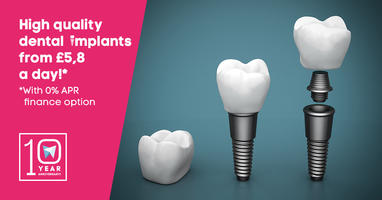“Hello, I need some information if it is possible. I am a 32 year old man from Russia and I have a big problem. It does not hurt, or anything, but I still have some milk teeth, the ones next to the canines. Is this a problem? I cannot feel big teeth under the little ones, and they do not look so bad, but I am worried, can my normal teeth not be there? Can they rot or something, what should I do, should I do anything?"
Sincerely, Yurij
Dear Yurij,
Do not worry, what you are experiencing is very rare, but a normal occurrence. It happens to less than 1% of the adult population, but it is not that big of a deal.
There are several reasons to why baby teeth do not fall out, and I will go on to explain them in a minute, but first, I have a few questions that you need to ask yourself in order to determine if you need to take the tooth out at all. First off, what color is the tooth? Is it white? I ask because baby teeth have shorter roots, and are more prone to dying, and when a tooth dies, it turns color, it becomes grayish and then eventually black. If the tooth has darkened in color over the years, you should get it removed. Even if it does not hurt. This is because bacteria can find an easy habitat in a dead tooth, and it has no way of fighting off the bacteria, so it will start to decay, and as all the nutrients leach out of it, it will become more and more of a nuisance.

Second question is, is the tooth mobile? Does it move, even slightly? If so, then you may have a tooth underneath it that has no way of coming out, or it may be growing sideways. If the tooth is not mobile, than it may be an adult tooth after all, or it may be the only tooth you are getting for that particular position. You see, sometimes you can have a condition in which not all of your teeth grow out, it is called hypodontia, and you can be missing quite a few teeth. If this is the case, and the tooth is not moving, does not have anything wrong with it, than you should just keep it.
The causes can be the above mentioned genetic causes, that there is no tooth underneath it, and thus the small rooted milk tooth does not get uprooted and does not get pushed out of the socket by the emerging adult tooth.
The causes may also be chemically related; certain chemicals, when introduced to the fetal environment can be teratogenic, meaning they can harm the fetus, and in certain cases, his can express itself with the lack of certain, or even all teeth. If you are from a mining town like Murmansk or Novosibirsk, or from anywhere on the river Dnepr, you have come into contact with these chemicals, and you may be affected by them.
The thing you should do, regardless of what the issue is, is to go and get a dental x-ray. That way, you shall see if there is an adult tooth under it, if it is in a bad position, if it should be rmeoved, or if there is anything underneath the milk tooth at all. If there isn’t one, than you can just keep the tooth until it goes bad, at which point you can have it pulled, and have a dental implant in its stead. if there is one underneath t, you should get the milk tooth removed, and the adult one will grow in. If the adult tooth is in a bad position, growing sideways, impacted, or has any other issues like that, you may need to have oral surgery to remedy the issue. But you will not know until you get a dental x-ray taken and show it to a dentist.
image: 1.

